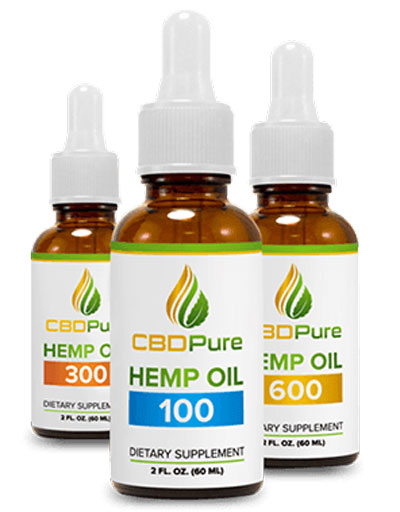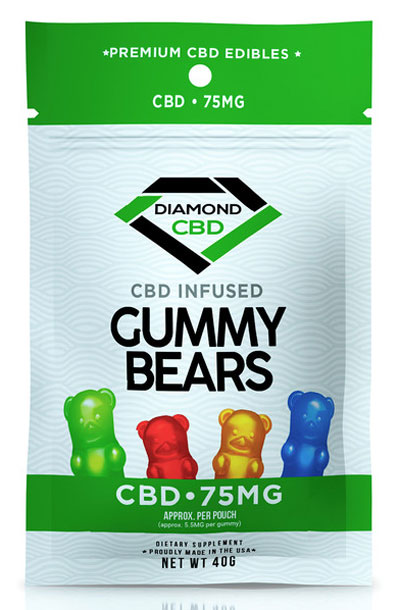FDA Opens CBD Regulatory Path Docket, Warns Firms On Claims Missteps
Executive Summary
With public hearing scheduled May 31 and a related public comment period, FDA "is interested in whether there are particular safety concerns that we should be aware of as we consider the FDA’s regulatory oversight and monitoring" of CBD products. Also influencing FDA's consideration is that CBD and other cannabis-derived substances are approved and being studied as drugs products, making their use as dietary ingredients noncompliant with agency regulations.
FDA wants public input on allowing cannabidiol's use in dietary supplements marketed with compliant claims, unlike the disease claims for CBD supplements made by three firms the agency recently warned.
"I believe these are egregious, over-the-line claims and we won’t tolerate this kind of deceptive marketing to vulnerable patients," FDA Commissioner Scott Gottlieb said of the claims listed in the agency's warning letters to Advanced Spine and Pain LLC, Nutra Pure LLC and PotNetwork Holdings Inc. (see box below).

About a public hearing FDA has scheduled for May 31 and the related public comment period – docket FDA-2019-N-1482, Gottlieb said the agency "is interested in whether there are particular safety concerns that we should be aware of as we consider the FDA’s regulatory oversight and monitoring of these products."
Salves, Oils, Gummys And More
The Office of Compliance in FDA's Center for Food Safety and Applied Nutrition warned each firm that its claims rendered its products unapproved drugs as well as misbranded supplements.
The CFSAN office warned Advanced Spine and Pain, dba Relievus and located in Mount Laurel, N.J., about violative claims for its “CBD Salve,” “CBD Oil” in 5 flavors and “CBD for Dogs" products made on its website and on social media platforms. The warning says claims rendering its products as unapproved drugs as well as misbranded supplements included:
-
"If you have any of the indications listed, please consider trying our cannabis treatment products! ... Anxiety ... Chronic Inflammation ... Cancer Pain ... Depression ... Chronic Pain ...”
-
“CBD successfully stopped cancer cells in multiple different cervical cancer varieties.”
Additionally, Relievus' “CBD Oil” products are labeled with instructions for sublingual use. FDA defines supplements as products “intended for ingestion,” meaning sublingual products don't qualify.
The warning to Nutra Pure, of Vancouver, Wash., states that on its website, claims for its “Hemp Oil” and “CBD Softgels” included:
-
“For Alzheimer’s patients, CBD is one treatment option that is slowing the progression of that disease.”
-
CBD "is building a reputation as an effective and safe treatment alternative in the battle against chronic inflammation.”
PotNetwork, of Fort Lauderdale, Fla., was warned about claims for its "Liquid Gold Gummies" in "Sweet Mix” and "Sour Mix” varieties and its “blue CBD Crystals Isolate” including:
-
"In some lab studies, CBD has also shown the ability to kill cancer cells directly without the help of our immune system."
-
"Scores of research studies into CBD's effects on a myriad of conditions from epilepsy to Alzheimer's, autism, PTSD, and much more.”
Concerns other than safety, though, are influencing FDA's consideration about allowing CBD's use in supplements or food products. CBD and other cannabis-derived substances are approved for use in a drug and being studied for additional drug products, making their use as dietary ingredients noncompliant with FDA regulations.
FDA is "interested in how the incentives for, and the feasibility of, drug development with CBD and other cannabis-derived compounds would be affected if the commercial availability of products with these compounds, such as foods and dietary supplements, were to become significantly more widespread," the commissioner said in FDA's April 2 announcement.
Gottlieb has explained on multiple occasions, including in recent House and Senate appropriations hearings, that FDA realizes sales of CBD-containing supplements and food products are soaring even though the substance is noncompliant as a dietary ingredient. However, partly due to its limited resources, FDA is exercising enforcement discretion and allowing sales of CBD supplements that are not marketed with disease claims by firms that are otherwise compliant with the agency's regulations and requirements. (Also see "FDA To Consider Regulatory Shift Making Cannabis Ingredients Officially Eligible For Use In Dietary Supplements" - HBW Insight, 28 Dec, 2018.)
FDA's warning letters submitted on March 28 to three firms about claims for CBD treating diseases and conditions from cancer to diabetes, and from Alzheimer's to withdrawals from drug addiction, also included comments from the Federal Trade Commission.
"The FTC is concerned that one or more of the efficacy claims cited above may not be substantiated by competent and reliable scientific evidence. The FTC strongly urges you to review all claims for your products and ensure that those claims are supported by competent and reliable scientific evidence," the agency stated in each of the letters.
Comprehensive Consideration Of CBD Oversight
FDA's enforcement discretion would end and comprehensive oversight of CBD product manufacturing and marketing would start should the agency, through a rulemaking or through legislation, change from its current stance on the substance's use as a dietary ingredient. In recent comments to lawmakers, Gottlieb has suggested that authorizing legislation is the more likely route for making the change (see sidebar below).
FDA's consideration of regulatory pathways for using hemp and CBD ingredients in supplements and food, which is led by an agency working group, started after some restraints on research, production and sales of hemp, which is a source of CBD, were eased in the latest farm bill, the re-authorization of US Department of Agriculture programs, that Congress passed in December. The bill did not eliminate FDA's authority to regulate using hemp and CBD in supplements and food as well as in drugs and animal products. (Also see "FDA To Consider Regulatory Shift Making Cannabis Ingredients Officially Eligible For Use In Dietary Supplements" - HBW Insight, 28 Dec, 2018.)
The meeting notice prepared for the April 3 Federal Register shows FDA's comprehensive approach to adjusting its regulation of the ingredient. But, the meeting is only a first step.
"The goal of the hearing is to obtain additional scientific data and other information related to cannabis and cannabis-derived compounds, both from botanical and synthetic sources, to inform our regulatory oversight of these products. FDA does not intend for this hearing to produce any decisions or new positions on specific regulatory questions, but this hearing is expected to be an important step in our continued evaluation of cannabis and cannabis-derived compounds in FDA-regulated products," the meeting notice states.
FDA asks for comments on three areas of questions. Its health and safety risks questions include
-
"Based on what is known about the safety of products containing cannabis and cannabis-derived compounds, are there particular safety concerns that FDA should consider regarding its regulatory oversight and monitoring of these products?"
-
"What are the characteristics of a successful system to collect representative safety information at the national or State level about products containing cannabis and cannabis-derived compounds?"
-
"What endpoints or outcomes would define a maximal acceptable daily intake from all products?"

Under manufacturing and product quality, FDA's questions include:
-
"Are there any data known that would support the safe use of cannabis and cannabis-related compounds in general food use (including dietary supplements), including data regarding exposure levels to cannabis and cannabis-related compounds in foods (including dietary supplements) that would be acceptable from a food safety perspective?"
-
"Are there particular standards needed to address any safety issues related to the manufacturing, processing, and holding of products containing cannabis and cannabis-derived compounds (e.g., genotoxic impurities, degradation of active compounds)?"
-
"Are there particular standards or processes needed to ensure manufacturing quality and consistency of products containing cannabis or cannabis-derived compounds, including standards applied to evaluate product quality?"
And its marketing/labeling/sales questions include:
-
"How should consumers be informed about the risks associated with such products (e.g., directions for use, warnings)? What specific risks should consumers be informed about?"
-
"Are there any subpopulations for which additional warnings or restrictions are appropriate?"
-
"What statutory or regulatory restrictions are in place under State or local law to warn about the use of these products by certain vulnerable human populations (e.g., children, adolescents, pregnant and lactating women) or animal populations (e.g. species, breed, or class)?"
As it does with every public hearing notice, FDA also lists the categories of products under its oversight that are relevant to the meeting topic. But unlike most topics, this public hearing touches on all the regulated-product categories: human drugs, human foods/dietary supplements, animal food and drugs, cosmetics, tobacco products and medical devices.
Requests to make oral presentations and comments at the public hearing are due at FDA by May 10. Comments to the docket will be accepted until July 2.
